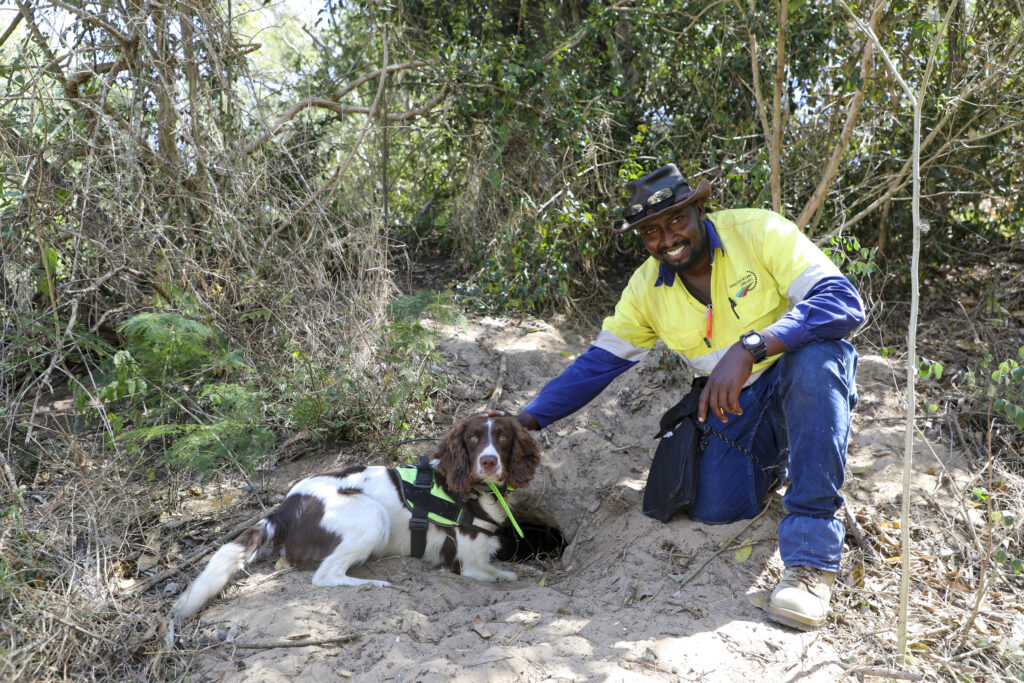
The Bundaberg Region has recruited a detection professional in its fight to protect native animals against fox predation.
Hakka is highly trained, an expert in his field and he’s a dog.
Bundaberg Regional Council’s Land Protection Officers have been working alongside Hakka to sniff out European Foxes which are a major threat to local nesting marine turtles.
Hakka (full name Hercules) and his handler Agaba Hanington work as part of the Southern Queensland Landscapes (SQL) Conservation Detector Dog unit and have been engaged by Council’s Land Protection team to build on its existing database of known fox dens along the coastline.
Agaba said Hakka had been working with the team for 18 months so far, including training time, and had picked up the necessary skills very quickly.
“Basically what he does, he tracks the foxes’ scent, then takes us back to the fox dens where they are,” Agaba said.
“Hakka finds the den, then when he finds the den, he sits on the den.
“Then we give him a reward, his reward is a ball.”
The project has extended on the work undertaken as part of the Nest to Ocean Protection Program, a joint initiative between Council, Queensland Parks and Wildlife, Gidarjil Development Corporation and Burnett Mary Regional Group.
With landholder consent, properties in the targeted area from the Kolan River to the Elliott River were identified and inspected with appropriate humane control measures used to remove the foxes.
Using real time infield mapping, data has been collected and shared using the latest technology, including analysis of the relationship between fox dens and soil type mapping.
Agaba said, as foxes fed on marine turtle eggs, it was important to put these protection measures in place in areas like Bundaberg.
“The recent figures are showing that we have 1.7 million foxes in Australia, of which 300 million Australian natives are being killed by these introduced predators,” he said.
“I think it’s worth it to really do a control and put a stop to them [because of] the fact that Bundaberg is an area for nesting turtles.”
Agaba said that while he and Hakka enjoyed the job for different reasons, the result of their work was the important thing.
“We really enjoy what we are doing, Hakka enjoys the work he’s doing,” he said.
“To him it is a game and to us it is saving natives, which is the most amazing part of it.”
A conservation hero
Agaba was part of the pioneering force behind the instruction of conservation detector dogs in Uganda and is now based in Toowoomba as part of the SQL’s Vertebrate Pest and Wildlife Management unit.
He played a pivotal role in the fight against international poachers and was decorated by the Ugandan Government in 2019 with the National Heroes Medal after saving several women and children from the Bundibugyo floods in Semuliki National Park where he worked as a community conservation ranger.




